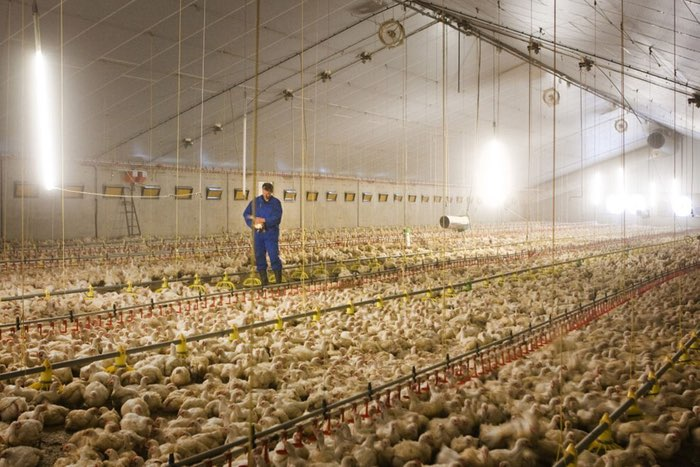
Officials in the Ministry of Agriculture and Animal Resources (MINAGRI) have disclosed that the government has put more efforts in availability of funding and capacity building mechanisms to empower private investors in poultry.
Speaking to the members of the press, Solange Uwituze, Deputy Director in charge of Animal Resources, Research and Technology Transfer at the Ministry of Agriculture, disclosed that government wants to build capacity of the private investors for them to be able to sustainably do private investment in poultry farming.
“First and foremost, we want to up-skill the private investors on how to deal and negotiate the markets where they sell their products,” she disclosed adding “But most importantly, to build confidence in farmers to get access to finance and access to facility to be able to absorb financial shocks in the long-run.”
“Some financed farmers built modernized hatchery and need required value addition facilities but they need organized suppliers to sustainably continue practicing poultry farming.
The target is to see that modern farming is realized by the private sector without the intervention of government. That’s how we are building up the farming so that it remains sector driven,” she disclosed.

According to the ministry figures, a total of 12,300 farmers were trained in poultry farming through the Partnership for Resilient and Inclusive Small Livestock Markets (PRISM) project implemented by the Ministry of Agriculture and Animal Resources (MINAGRI) in partnership with Enabel among other partners.
Over 30 million USD sponsorship was funded by IFAD alongside 15.5 million Euros by Enabel, which sought to finance private investors willing to do poultry farming as business operators.
Enabel, the Belgian Development Agency whose projects focus on agricultural products kicked off in 2019 to 2024 and is continuing from 2024 until 2029 to support agriculture sector in Rwanda.
IFAD is also working in 15 districts while Enabel operates in 10 districts across the country.
Also, a total of 6,840 farmers participated in the 226 field farmer’s schools leading to increased animal feeds particularly of maize and soya beans whereby the maize production increased from 1.7 metric tons in 2021 to 3.2 metric tons in 2022 per ha.
Additionally, a total of 18,000 SHF were empowered to train other 12,300 in poultry and 5,700 in pig farming which switched farmers from traditional to commercial oriented livestock. The challenges of the single breed of pigs were solved so that now the 7 artificial insemination centers are put in place in the country whereby each one produces at least 160 doses per week.
However, private investors are encouraged to open up businesses of artificial insemination centers to solve the existing gaps. In this project, 15.5 million euros were injected under the Belgo-cooperation project while another grant over 30 million USD were funded under Ministry of Agriculture PRISM-IFAD project.
Janvier Kivuye, General Manager for Gorilla feeds, one of the beneficiaries of the Enabel project, accessed automated machinery to enhance production capacity of quality animal feeds and meet food safety stardands for domestic and export markets.
Under the access to finance programme, Kivuye’s company acquired 600 euros to increase modern stock of his animal products which has the capacity of storing up to 3,000 sacks of animal feeds.
A new automated machine he acquired on the funding of Enabel has the capacity to produce 15 tons of animal feeds in an hour compared to the production of 5 tons per hour from the old machines.
“Demand from different districts was high and I had to increase the output capacity by buying a new machine capable of producing a large capacity of animal feeds,” he said.
“Our animal feeds are able to speed up growth of the chicken in just 28 days,” he said.
